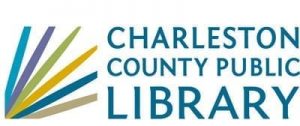Charleston County Public Library announces effort to reduce plastic waste in local waterways
June 1, 2017CHARLESTON, SC – Charleston County Public Library (CCPL) has committed to ending the distribution of single-use plastic bags at all 16 branch locations in an effort to fight marine debris that pollutes waterways and oceans. The National Marine Sanctuary Foundation recently awarded CCPL a grant to purchase reusable bags, and library customers may pick up a free bag at any CCPL location throughout June and July while supplies last.
The $6,400 grant is provided through a collaboration between the National Marine Sanctuary Foundation and the National Oceanic and Atmospheric Administration (NOAA) Marine Debris Program. These organizations strive to educate the public about the impact of plastic and other marine debris on the marine environment.
CCPL will host a kickoff event June 8 on World Oceans Day at the John’s Island Regional branch, located at 3531 Maybank Highway on John’s Island. Representatives from NOAA’s Marine Debris Program will be on-site between 10 a.m. and 1 p.m. to present information about marine pollution. Other CCPL branches will host programs in conjunction with the bag giveaway in June and July, and patrons are encouraged to contact their local library branch for program details and instructions to redeem one free bag per household. Supplies are limited; click here for CCPL branch contact information.
According to NOAA, plastic materials degrade into small pieces until they can’t be seen. Full degradation into carbon dioxide, water and inorganic molecules is called mineralization. Plastic has the potential to harm fish and other wildlife, and most commonly used plastics do not mineralize (or go away) in the ocean; they instead break down into smaller and smaller pieces. Research shows that plastic consumed by fish and other marine life may cause irritation or damage to the digestive system. Plastic debris also accumulates pollutants such as PCBs (polychlorinated biphenyls) up to 100,000 to 1,000,000 times the levels found in seawater.
For more information about the National Marine Sanctuary Foundation, visit www.MarineSanctuary.org. For details about NOAA’s Marine Debris Program, visit www.marinedebris.noaa.gov.














